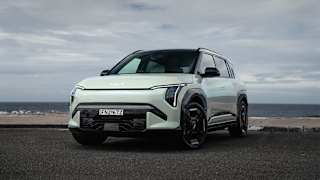
Dyson confirms EV to arrive by 2020
Dyson could clean up the electric-car market with plans to launch an emissions-free vehicle by 2020 to expand its product portfolio from vacuum cleaners, hairdryers and fans.
The British company, noted for its bagless vacuum cleaners on which its patents earn hundreds of millions of dollars annually, revealed its intention to take on the likes of Tesla via an email to staff from founder James Dyson.
A team of 400 people will work on the new project with an investment of €2 billion ($A3 billion), which will see the electric vehicles (EVs) developed and manufactured in-house.
Back in 2015, Dyson purchased solid-state battery manufacturer Sakti3 for $114 million with the intention of further developing the technology over the coming years.
Battery charge rates and longevity, together with size, weight and cost, are current restrictions on allowing EVs to compete successfully with vehicles using conventional internal-combustion engines.
Solid-state batteries are seen as a solution to most shortcomings, with companies including Toyota and car-share business Autolib in France either developing or using the technology already.
Dyson and Sakti3 has not disclosed the energy density it has achieved in its battery technology but industry experts estimate it has already passed 300 watts per kilogram, which should equate to a roughly 480km driving range.
Solid-state batteries can provide up to a tenfold increase in energy density and are also safer.
Current batteries use flammable organic solvents as an electrolyte (through which the current flows), whereas a solid electrolyte does not pose a fire risk and does not need expensive safety features.
The solid electrolyte also means the battery electrodes can be made of a much more energy dense material, such as metallic lithium (lithium-metal as produced by SES).
Though it is rumoured that Dyson will take on carmakers directly with its proposed EV, it is more likely the company will instead patent the technology and licence them to other manufacturers.
There was no discussion about how many – if any – cars Dyson plans to produce by 2020 or how much they will cost.










Comments